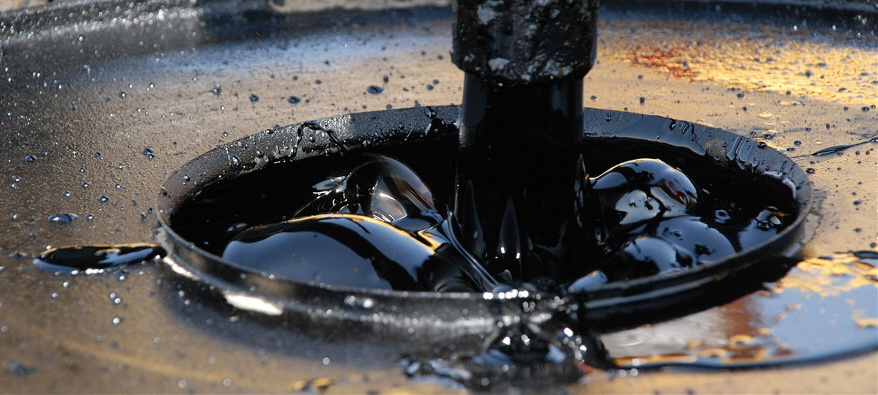Ever wonder what makes your driveway or highway so durable? The answer lies in asphalt and bitumen—two materials that often get mixed up but serve different roles. If you’ve ever questioned what they’re made of, why they’re preferred for roads, or why they’re so common in Australia, you’re in the right place. Let’s break it down.
What is Asphalt Made Of?

Asphalt is a blend of rocks, sand, and bitumen. Think of bitumen as the glue holding everything together. This sticky binder comes from refining crude oil. Mixed with aggregates (like crushed stones), asphalt creates a solid, flexible surface that can take a beating from traffic, rain, or even scorching heat. No wonder it’s used for roads, driveways, and parking lots!
Components of Asphalt
- Aggregates: crushed stone, sand, or gravel
- Bitumen: the binding agent derived from crude oil
What is Bitumen Made Of?

Bitumen is a thick, black, sticky substance. It’s a by-product of refining crude oil and is incredibly useful in road construction. It acts as a binder and waterproof layer. On its own, bitumen is also used in roofing and other waterproofing applications, thanks to its strong adhesive qualities.
Properties of Bitumen
- Waterproof
- Flexible and durable
- Highly adhesive, making it perfect for holding road materials together
What’s the Difference Between Asphalt and Bitumen?
Here’s where people get confused. Asphalt is the finished product you see on roads. Bitumen is just a part of it. It’s the sticky stuff that binds the aggregates in asphalt. In simple terms, bitumen is the ingredient, while asphalt is the cake!
Key Differences
- Asphalt = Bitumen + Aggregates
- Bitumen is only the binder, while asphalt is the complete mix.
Is Asphalt the Same as Tarmac?
Nope! Though people use these terms interchangeably, tarmac (short for tarmacadam) uses tar, not bitumen. It was an older method of paving roads. Nowadays, we use asphalt because it’s stronger and longer-lasting.
Differences Between Asphalt and Tarmac
- Tarmac uses tar, which is less durable.
- Asphalt uses bitumen, making it tougher for modern road use.
Why is Asphalt Called Tarmac?
Some folks still call asphalt “tarmac,” even though that’s outdated. The term comes from the early use of tar in paving. But today, bitumen has replaced tar, making modern asphalt more durable and reliable for roads, driveways, and airport runways.
What Makes Bitumen Different from Tar?
Bitumen and tar aren’t the same. Bitumen comes from crude oil, while tar comes from coal. Bitumen is far better for roads because it’s more resistant to weather changes and lasts longer. That’s why we rarely see tar in construction anymore.
Bitumen vs. Tar
- Bitumen is derived from crude oil.
- Tar is from coal and is less weather-resistant.
Why is Asphalt Preferred for High-Traffic Roads?
Asphalt stands up to heavy traffic like a champ. Whether it’s highways, parking lots, or city streets, asphalt can handle the weight and wear-and-tear from cars, trucks, and buses. It’s also easy to repair, which is great when a pothole shows up!
Benefits of Asphalt for High-Traffic Roads
- Durable and long-lasting
- Easy to maintain and resurface
- Handles heavy loads without cracking
Why Do Airports Use Tarmac Instead of Asphalt?
Technically, most modern airports don’t use tarmac; they use asphalt. The reason why asphalt (or asphalt-tarmac blends) is used for runways is its ability to resist skidding and handle the immense weight of planes. Plus, it lasts through countless take-offs and landings.
Reasons for Using Asphalt in Airports
- Skid resistance
- High weight tolerance
- Long-lasting under heavy use
Why is Asphalt Used More in Australia Than Concrete?
In Australia, asphalt is favored over concrete for road construction because it’s quicker and cheaper to install. Plus, asphalt handles temperature changes better than concrete. Roads in Australia need to endure extreme heat, making asphalt the smart choice.
Asphalt vs. Concrete in Australia
- Faster and cheaper to install
- More flexible, ideal for extreme heat
- Requires less maintenance than concrete
What is Better than Asphalt?
In some cases, concrete or pavers may be better. For example, concrete lasts longer and requires less maintenance. But for most roadways, asphalt is still the top choice because it’s recyclable, easy to repair, and cost-effective.
Alternatives to Asphalt
- Concrete for long-term projects
- Pavers for high-end driveways
- Recycled materials for eco-friendly roads
Conclusion
When it comes to road construction, asphalt and bitumen are key players. Bitumen acts as the binder, while asphalt makes the smooth, durable surface we drive on daily. Whether it’s for highways, driveways, or even airports, asphalt is the clear winner for its strength, flexibility, and cost-efficiency.
Call to Action
Planning a new driveway or need advice on road construction? Let our experts guide you through the best options for your project. Reach out today and get the road ahead looking smooth and strong!

